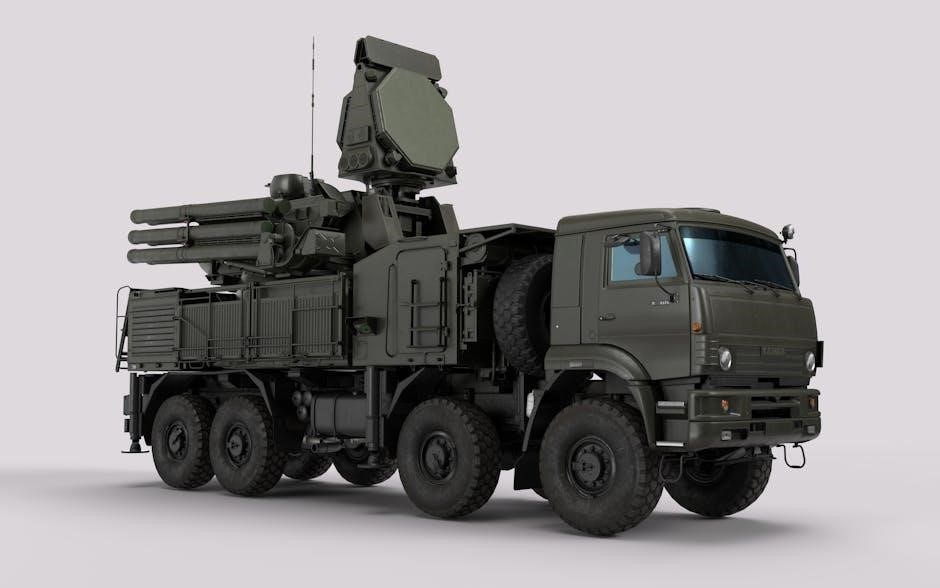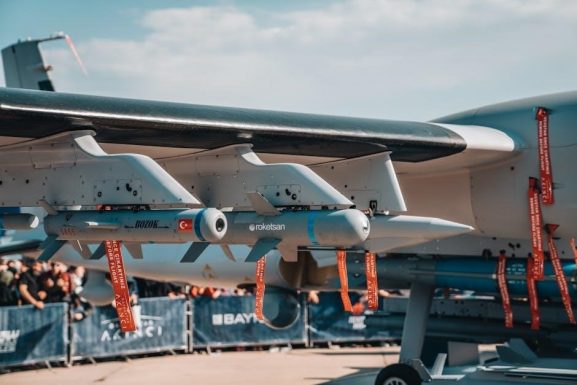Guided missiles in pubs represent a unique intersection of military technology and civilian life, sparking conversations about their historical context and modern implications.
These advanced weapons, traditionally used in warfare, now inspire discussions in social spaces, blending innovation with ethical debates about their role in public environments.
The concept of “guided missiles” in pubs highlights the evolving relationship between technology and society, raising questions about their impact on security and daily interactions.
Understanding their historical development and modern functionality provides insight into how such systems influence public spaces and shape future security landscapes.
1.1 Historical Context of Weapons in Public Spaces
The presence of weapons in public spaces has evolved significantly over time, with historical examples showing their integration into societal norms and conflicts. Early instances, such as swords in medieval taverns, highlight how weapons were once common in public areas. However, modern advancements in weaponry, like guided missiles, have shifted perceptions, raising ethical concerns about their presence in civilian settings. Historical events, such as the development of precision weapons post-WWII, showcase how military technology gradually influenced public discourse, leading to stricter regulations and debates about safety and ethics in shared spaces.
1.2 The Concept of “Guided Missiles” in Modern Warfare
Guided missiles are advanced weaponry systems designed to strike targets with precision, utilizing technologies like GPS, infrared, or radar for accuracy. Unlike unguided weapons, they rely on real-time data to adjust their trajectory, minimizing collateral damage. Their development has revolutionized modern warfare, enabling military forces to engage enemies with greater efficiency. However, their potential presence in public spaces like pubs raises ethical concerns, as their sophistication contrasts sharply with the casual nature of such environments, sparking debates about security and the role of military technology in civilian life.
This duality highlights the tension between innovation and societal safety, as guided missiles symbolize both progress and risk in modern contexts.

Historical Development of Guided Missiles
Guided missiles evolved from early experiments with radio-controlled weapons in World War II to sophisticated systems during the Cold War, driven by technological advancements and geopolitical tensions.
2.1 Early Examples of Guided Weapons
Early guided weapons emerged during World War II, with Germany’s V-1 flying bombs and the U.S. Navy’s Bat missile paving the way for modern missile technology.
2.2 The Role of Technology in Missile Development
Advancements in technology have been pivotal in shaping modern guided missiles, enabling precision targeting and enhanced accuracy through systems like infrared seekers and GPS guidance.

These innovations reduce collateral damage and improve lethality, making missiles more effective in Various operational scenarios while addressing ethical concerns about unintended consequences.

The Intersection of Military Technology and Civilian Life
Military technology’s presence in civilian spaces like pubs reflects its growing influence on public life, blending defense innovations with community interactions, raising both security and ethical considerations.
3.1 The Impact of Military Innovations on Public Spaces
Military innovations, such as guided missiles, are transforming public spaces like pubs, blending advanced technology with social environments, creating a unique cultural shift.
The integration of AI and automation in these systems raises questions about security, privacy, and the ethical use of such technologies in civilian settings.
While these advancements enhance safety, they also spark debates about their potential misuse and the balance between innovation and public trust in shared spaces.
3.2 Ethical Considerations of Advanced Weapons in Pubs
The presence of advanced weapons like guided missiles in pubs raises significant ethical concerns, particularly regarding public safety and privacy.
Questions arise about the potential misuse of such technology in civilian settings, where unintended harm could occur, undermining trust in public spaces.
Additionally, the psychological impact on patrons, who may feel uneasy surrounded by military-grade technology, highlights the need for ethical guidelines and regulations.
Striking a balance between innovation and responsibility is crucial to ensure such technologies serve the public good without compromising ethical standards or personal freedoms.

Design and Functionality of Modern Guided Missiles
Modern guided missiles in pubs are designed with advanced propulsion systems and sophisticated guidance mechanisms, ensuring precision and efficiency in various public space applications.
Their functionality incorporates cutting-edge technology, enabling seamless integration into civilian environments while maintaining high performance standards for security and operational needs.
4.1 Propulsion Systems and Navigation
Modern guided missiles in pubs utilize advanced propulsion systems, enabling efficient and adaptable movement within public spaces. These systems are designed to navigate through crowded environments seamlessly, ensuring precision targeting while minimizing collateral impact. Navigation is enhanced by sophisticated algorithms and real-time data processing, allowing the missiles to adapt to dynamic situations. The integration of AI in guidance systems further improves accuracy and decision-making, making these missiles highly effective in various public space applications. Ethical considerations surrounding their use in civilian settings remain a focal point of ongoing debates.
4.2 Target Acquisition and Locking Mechanisms
Guided missiles in pubs employ advanced target acquisition systems, utilizing sensors and AI-driven algorithms to identify and lock onto specific targets with precision. These mechanisms ensure accuracy by analyzing real-time data, minimizing errors. Infrared and thermal imaging enhance detection capabilities, while automated systems maintain focus on targets even in dynamic environments. The locking mechanisms are designed to adapt to movement and interference, ensuring reliable engagement. Ethical concerns arise regarding the potential for unintended targeting in crowded spaces, highlighting the need for strict safety protocols and ethical guidelines in their deployment.

The Role of AI in Modern Missile Systems
AI enhances missile guidance, enabling precise targeting and adaptive decision-making. It optimizes trajectories, predicts outcomes, and improves reliability, revolutionizing modern warfare capabilities while raising ethical concerns.

5.1 Artificial Intelligence in Guidance Systems
Artificial intelligence plays a pivotal role in modern missile guidance systems by enhancing accuracy and decision-making. AI algorithms analyze complex data, such as target trajectories and environmental factors, to optimize missile paths. This technology enables real-time adjustments, improving the likelihood of successful strikes. Additionally, AI-powered systems can autonomously identify and lock onto targets, reducing human error. However, the integration of AI raises concerns about reliability and accountability, as machines assume critical roles in warfare. The use of AI in guidance systems represents a significant leap forward in military technology, blending precision with ethical complexity.
5.2 Ethical Implications of Autonomous Weapons
The use of autonomous weapons in public spaces like pubs raises significant ethical concerns, particularly regarding accountability and decision-making. These systems, relying on AI, operate without human intervention, sparking debates about moral responsibility. Questions arise about who bears accountability for errors or unintended harm caused by autonomous weapons. Additionally, the potential for misuse or hacking poses risks to public safety. The psychological impact on civilians in such environments further complicates the issue, highlighting the need for robust ethical frameworks and international regulations to govern their deployment and ensure responsible use.
The Future of Guided Missiles in Public Spaces
Advancements in AI and miniaturization may integrate guided missiles into public spaces, raising concerns about security, ethics, and the balance between innovation and societal safety.
6.1 Advancements in Miniaturization and Portability
Recent advancements in miniaturization and portability of guided missiles have enabled their potential deployment in public spaces, blending stealth with precision.
Technological innovations in materials and propulsion systems have reduced the size and weight of missiles, making them more adaptable to urban environments.
Portable missile systems now offer enhanced mobility, allowing for rapid deployment in public areas, while maintaining high accuracy and lethality.
These advancements also integrate AI for improved targeting, raising concerns about their misuse and the need for strict regulatory frameworks in public spaces.
6.2 Potential Risks and Security Concerns
The integration of guided missiles in public spaces like pubs poses significant security risks, including potential misuse by malicious actors.
Miniaturized systems could be easily concealed, increasing the likelihood of unauthorized deployment in crowded areas, leading to unintended casualties and chaos.
Additionally, the ethical implications of autonomous weapons in public spaces raise concerns about accountability and the potential for AI-driven errors.
These risks underscore the need for stringent regulations and advanced security measures to prevent exploitation and ensure public safety in such environments.
While technological advancements offer potential benefits, the risks associated with miniaturization and autonomy in public spaces cannot be overlooked.
Striking a balance between innovation and safety is essential to ensure that such technologies enhance rather than endanger societal well-being.
Ultimately, the future of guided missiles in pubs hinges on responsible development and robust regulatory frameworks to mitigate risks and foster a secure environment for all.
